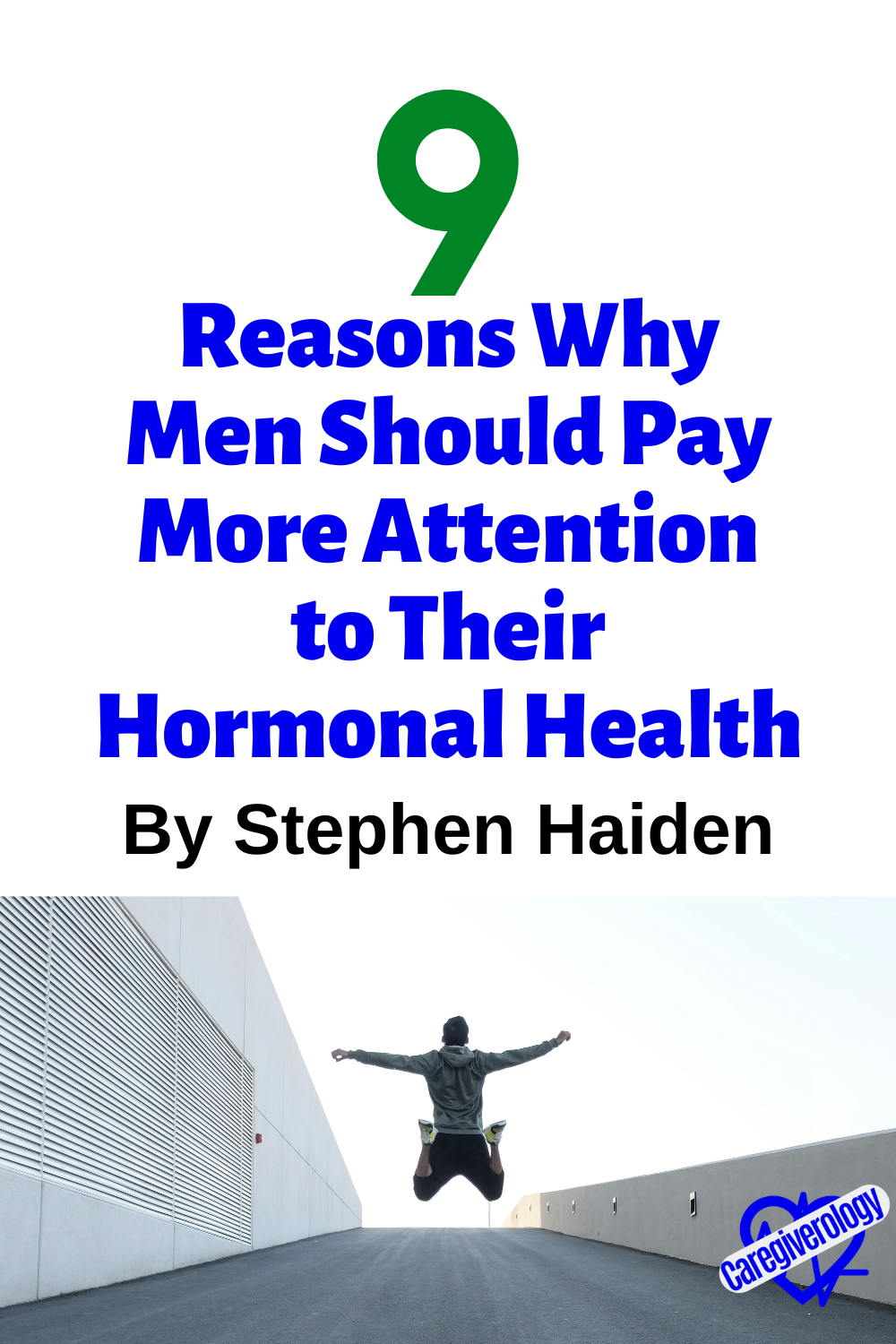9 Reasons Why Men Should Pay More Attention to Their Hormonal Health

In today's fast-paced world, men's health often takes a backseat until noticeable problems arise. However, one aspect of health that silently influences every facet of life is hormonal health. Hormones are the body's chemical messengers, playing pivotal roles in regulating mood, growth, metabolism, and sexual function, to name a few. Unfortunately, the significance of hormonal balance is frequently overlooked in the broader conversation about men's health.
This article dives into why men should pay more attention to their hormonal health. Understanding these aspects can empower men to lead healthier, more fulfilling lives.
1. Improved Physical Health
Hormones, particularly testosterone, are foundational to men's physical health. Testosterone's role is not limited to just influencing a man's libido; it's also crucial for muscle mass and strength, bone density, and red blood cell production. Optimal levels of this hormone contribute significantly to a man's physical performance and energy levels. Men experiencing low testosterone levels often report a decrease in muscle strength, endurance, and an overall sense of fatigue.
By paying attention to and managing hormonal health, men can maintain their physical vigor, prevent osteoporosis, and enjoy an active lifestyle well into older age.
2. Better Sexual Health
Sexual health is a significant part of a man's life and well-being. Hormones play a central role, with testosterone directly affecting libido and erectile function. An imbalance in testosterone levels can lead to a decrease in sexual desire, difficulties in achieving or maintaining erections, and overall dissatisfaction with sexual life. These issues can strain personal relationships and affect mental health.
Testosterone Replacement Therapy (TRT) offered by clinics like Huddle Men's Health can be a game-changer for those struggling with such conditions. TRT is designed to restore testosterone levels to their optimal range, improving libido, erectile function, and overall sexual satisfaction. For those looking for expert assistance in managing their hormonal health, these clinics provide comprehensive solutions tailored to each individual's needs, ensuring a path to improved sexual health and overall quality of life.
3. Enhanced Mental Well-being
The relationship between hormonal health and mental well-being cannot be overstated. Hormones like testosterone influence mood, energy levels, and cognitive function. An imbalance can manifest as mood swings, irritability, depression, or a general lack of motivation. These mental health issues not only affect personal and professional relationships but can also lead to a decreased quality of life.
By recognizing the signs of hormonal imbalance and taking steps to address them, men can significantly improve their mental well-being. Strategies for maintaining hormonal balance include managing stress, exercising regularly, and getting enough sleep. For those needing more targeted intervention, professional help can make a substantial difference in navigating these challenges.
4. Weight Management and Metabolism
Hormonal imbalances can also impact a man's ability to manage weight and metabolic rate. Testosterone plays a role in fat distribution, muscle mass, and metabolism. Low levels can lead to increased body fat, especially around the abdomen, and a decrease in muscle mass, slowing down the metabolism. This not only affects physical appearance but also increases the risk of metabolic syndrome, diabetes, and cardiovascular diseases. Paying attention to hormonal health can help men maintain a healthy weight and metabolic rate.
5. Healthier Skin and Hair
Hormonal balance is not just about what's happening inside your body; it also significantly impacts your external appearance. Hormones, particularly testosterone, can influence your skin's oil production and overall health, leading to acne or other skin conditions when imbalanced. Similarly, hormonal fluctuations can affect hair growth, leading to thinning hair or hair loss. By maintaining a balanced hormonal profile, men can see improvements in the health and appearance of their skin and hair.
Adopting a lifestyle that supports hormonal balance and seeking professional advice for persistent issues can lead to noticeable improvements in your appearance and, consequently, your self-esteem.
6. Improved Sleep Quality
Sleep is crucial for overall health, and hormonal imbalances can significantly disrupt sleep patterns. Low testosterone levels, for instance, are linked to sleep disturbances, including difficulty falling asleep, staying asleep, or experiencing restful sleep. This lack of quality sleep can create a vicious cycle, further disrupting hormonal balance and exacerbating health issues.
Addressing hormonal imbalances can lead to improved sleep quality, which supports the body's natural rhythms and healing processes, contributing to better health across all areas of life.
7. Longevity and Aging
Hormonal health plays a vital role in the aging process. Maintaining optimal hormonal balance can help mitigate some common effects of aging, such as decreased muscle mass, increased body fat, and reduced energy levels. By focusing on hormonal health, men can increase their lifespan and improve their quality of life in later years, staying active and enjoying a fulfilling lifestyle.
Preventive measures, including regular check-ups and hormone level monitoring, are key to managing the aging process gracefully.
8. Cardiovascular Health
The heart is another area where hormones, especially testosterone, have a significant impact. Research suggests that optimal testosterone levels are linked to a lower risk of cardiovascular diseases. Testosterone affects cholesterol metabolism, blood sugar levels, and inflammation, all of which are risk factors for heart disease. By maintaining a healthy hormonal balance, men can protect their heart health, reducing the risk of hypertension, stroke, and heart attack.
Lifestyle choices that promote hormonal health also support cardiovascular health, highlighting the interconnectedness of the body's systems.
9. Prevention of Chronic Diseases
Beyond the immediate benefits, paying attention to hormonal health is crucial for preventing chronic diseases. Hormonal imbalances can increase the risk of developing conditions like diabetes, osteoporosis, and certain types of cancer. For example, low testosterone levels are linked to a higher risk of diabetes and metabolic syndrome.
By managing hormonal health, men can take a proactive stance against these diseases, utilizing hormone therapy when appropriate and making lifestyle changes that support overall health and well-being.
Conclusion
The importance of hormonal health for men cannot be overstated. It influences not just physical and sexual health but also mental well-being, appearance, sleep quality, aging, heart health, and the risk of chronic diseases. Recognizing the signs of hormonal imbalance and taking steps to address them are crucial for maintaining health and improving the quality of life.
Lifestyle changes such as a balanced diet, regular exercise, stress management, and adequate sleep play a significant role in supporting hormonal health.
Thank you Stephen Haiden for contributing this article.
Guest Articles Written for Caregiverology
From 9 Reasons Why Men Should Pay More Attention to Their Hormonal Health to Home
Recent Articles
-
Common Truck Crash Injuries and Legal Remedies - Caregiverology
Jul 19, 25 10:49 AM
Known for its sun-drenched beaches, vibrant arts scene, and bustling maritime industry, Fort Lauderdale is a city that sees heavy traffic both on its roads and at its busy port. Unfortunately, with th… -
Why Expert Legal Help Matters After Serious Injury - Caregiverology
Jul 19, 25 10:35 AM
In Houston, over 67,600 car crashes occurred in 2023, resulting in 290 fatalities and 1,612 serious injuries. That’s roughly 185 accidents every day. -
How Life Care Planners Support Injury Recovery - Caregiverology
Jul 19, 25 10:18 AM
In Los Angeles, life care planners play a vital role in supporting injury recovery, especially for individuals facing catastrophic injuries such as traumatic brain injuries or spinal cord damage.





New! Comments
Have something to say about what you just read? Leave a comment in the box below.